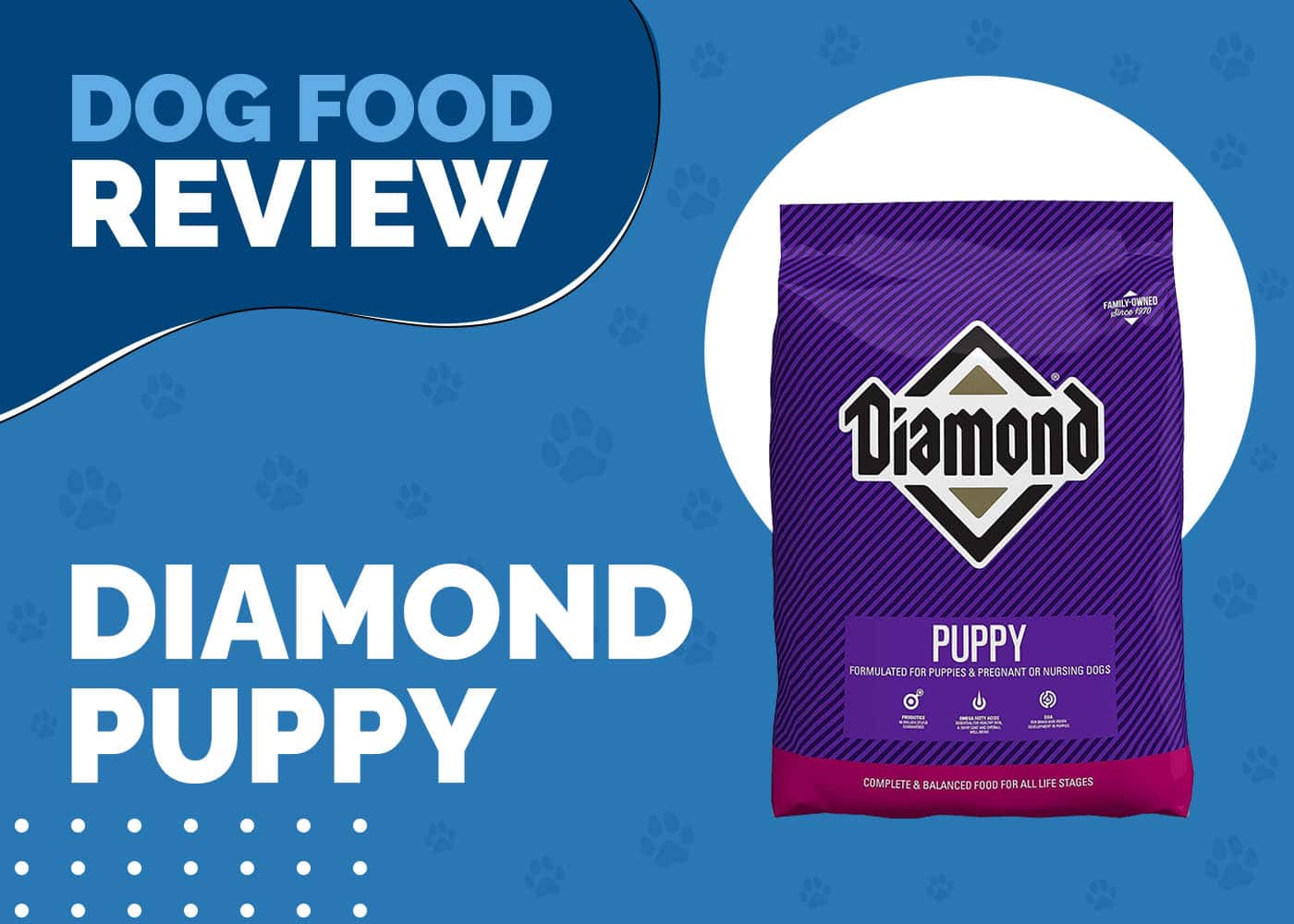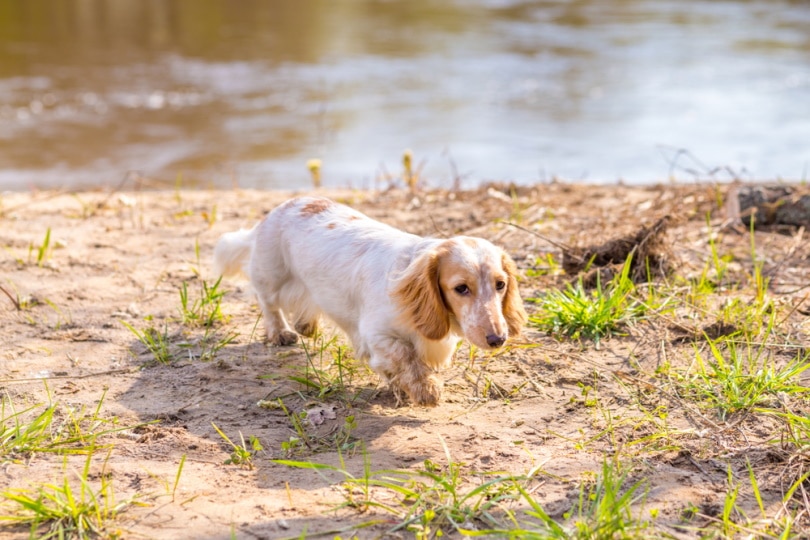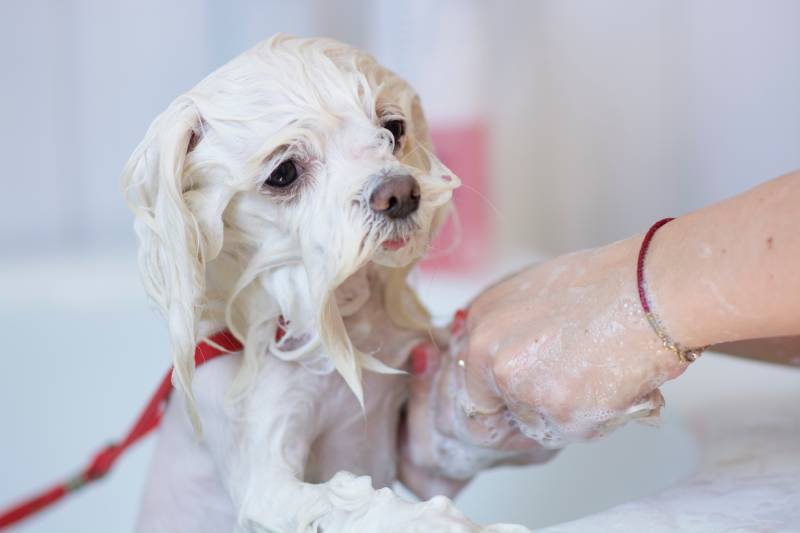Why Is My Dog Throwing Up Undigested Food? 8 Potential Issues
Updated on
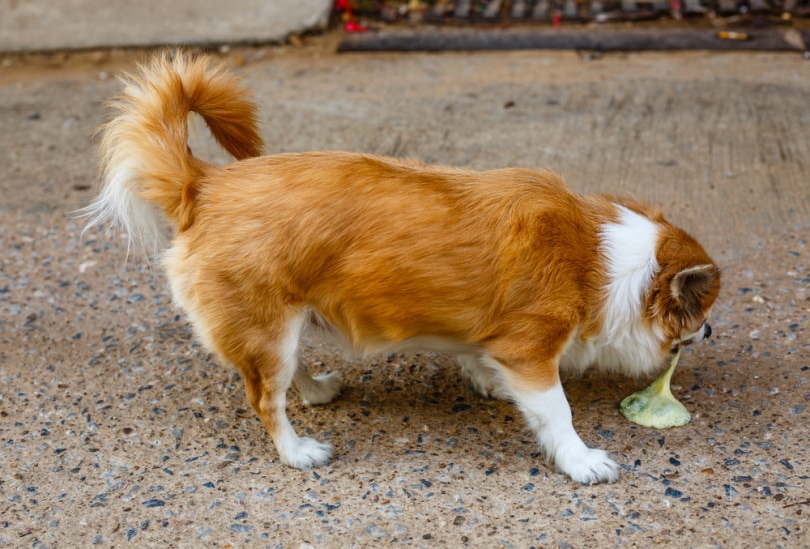
Dogs vomit and regurgitate from time to time, so it’s not a big deal if it happens occasionally. However, you’re probably reading this because your dog keeps throwing up undigested food. In that case, we want to help you figure out what could be the reason.
Before we begin, we should clarify something. If your dog is throwing up undigested food, it’s actually not vomit—it’s regurgitation. Regurgitation is when food and liquid sloth around in the esophagus (the tube that connects the mouth and stomach) and passively comes back up. There’s no nausea or retching like is typically seen with vomiting. And, as you know, food is undigested.
So, let’s discuss eight potential reasons why your dog could be experiencing regurgitation.
Why Is My Dog Throwing Up Undigested Food?
1. Megaesophagus
Megaesophagus is when the esophagus expands and loses the ability to move food into the stomach. When this happens food and liquid actually have a harder time moving to the stomach because the throat muscles can’t function properly.
For this reason, regurgitation is a common sign of megaesophagus. There are a few breeds that are predisposed to megaesophagus, such as:
- Wire-Haired Fox Terrier
- Miniature Schnauzer
- German Shepherd
- Great Dane
- Newfoundland
- Irish Setter
- Shar Pei
- Labrador Retriever
- Greyhound
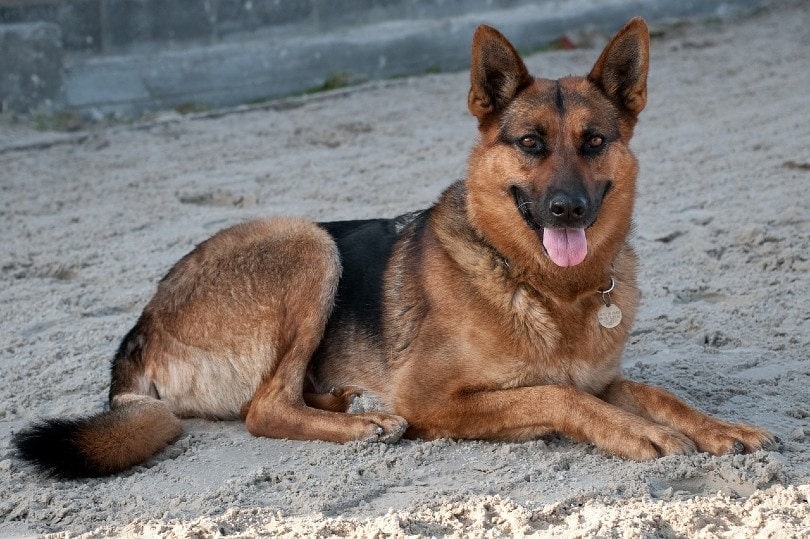
- What can be done to address this depends on whether your dog has associated aspiration pneumonia or not. Usually, treatment revolves around prevention of regurgitation and allowing food to pass through the esophagus normally.
- Nasogastric tubes are a great way to do this. This is a tube that passes through the nose down into the stomach. Veterinarians can manually remove regurgitation and feed an animal liquid food this way.
- Animals with megaesophagus need a high-calorie diet, and sometimes this can be through liquid food. Other times animals need solid food to prevent inhalation into the lungs.
- Another option to help your pet is using a Bailey chair. This allows a pet to sit and eat in an upright position to prevent regurgitation.
2. Eating Too Much
You know that pain in your stomach after eating way more than you should have? You feel like you have to vomit even though you just ate, and maybe you actually do! When your dog overeats, the same thing occurs. The excess ingesta applies pressure, so your dog simply regurgitates the food.
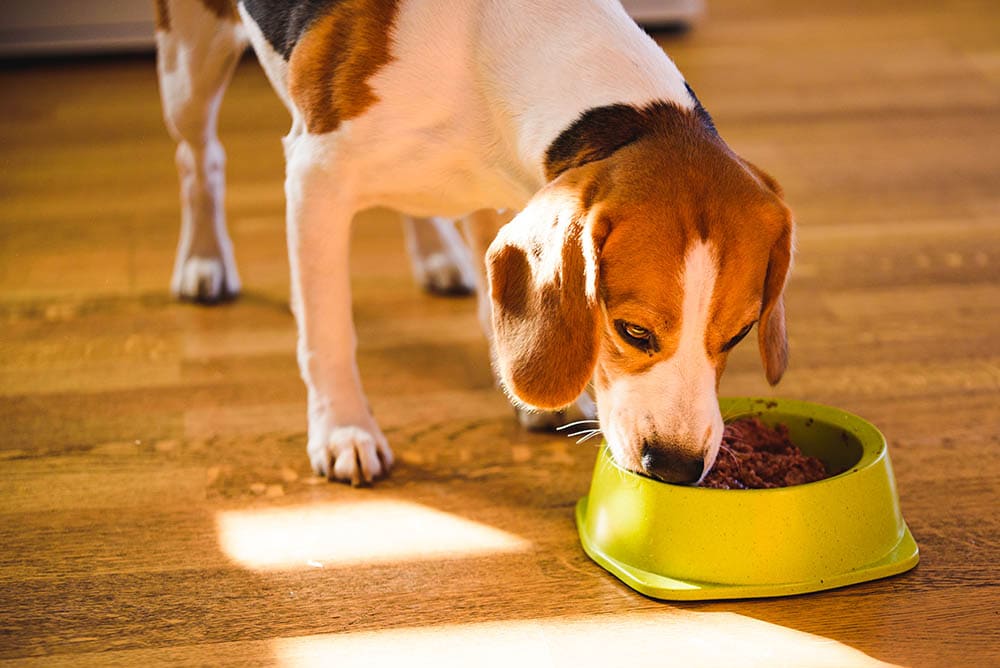
- This may be a simple fix. Feed your dog small amounts of food at different times. You can also try food puzzles to prolong mealtime. Also, be wary of your dog’s diet. Know how many calories your dog needs and go easy on the treats.
- Optimize the benefits of your dog’s diet with our calorie calculator here.
3. Eating Too Fast
Sometimes, our dogs eat way too fast, and it’s difficult for them to properly swallow the food. This may lead to the unpleasant act of your dog regurgitating the food and eating it again. Often, when a dog eats too fast, he inhales air along with the food, which may cause distension in the GI tract, which we all know to be an uncomfortable feeling.
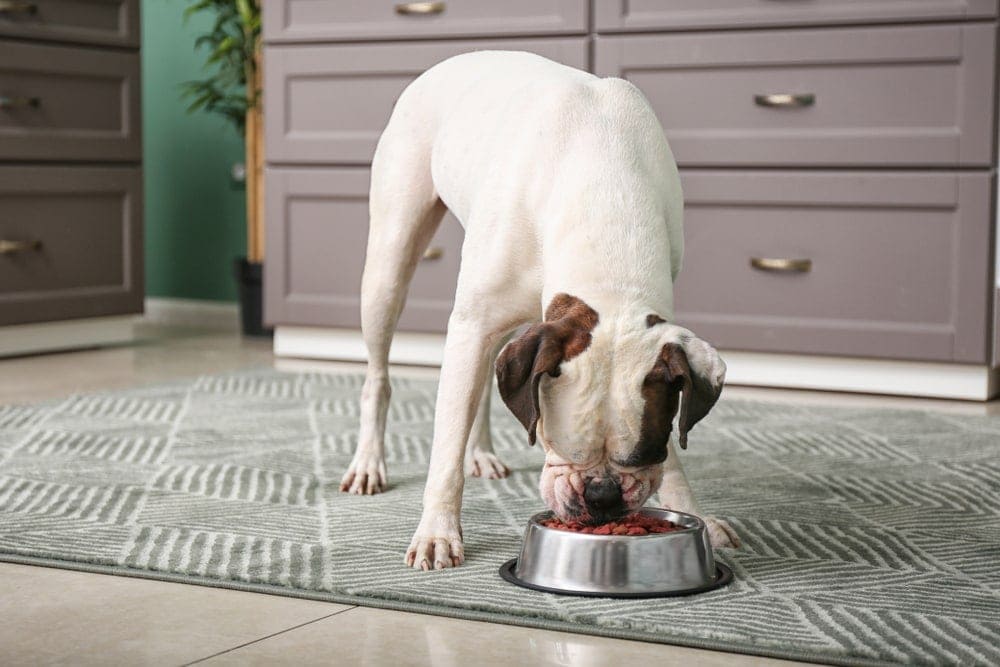
- Offer your dog small amounts of food at a time. Food puzzles like Kongs and wooly snuffle mats are great ways to increase the duration of each meal and add a little fun to the meals.
4. Gastric Reflux
Gastric Reflux Disease, or GERD, is a chronic condition in which gastric acid moves into the esophagus. Normally, the small opening connecting the esophagus and stomach (esophageal sphincter) prevents acid from entering. But with GERD, this isn’t the case. The stomach acid irritates the throat and causes difficulty swallowing. If your dog is regurgitating food regularly, GERD could be a reason.
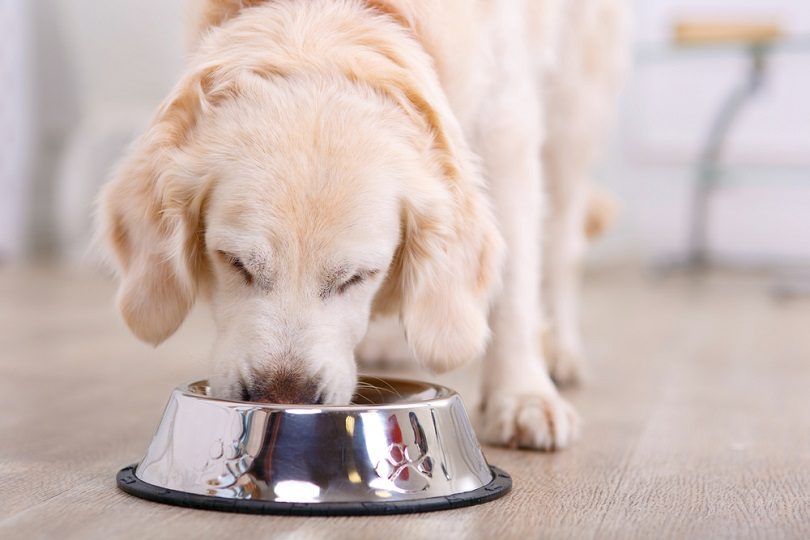
- GERD can be treated in different ways, ranging from oral medications given regularly to low-fat prescription food. Overall, dogs have a good prognosis with GERD.
5. Foreign Body
A foreign body is when your dog has something stuck inside its body that isn’t supposed to be there. An Esophageal Foreign Body (EFB) is when the object is stuck inside the throat. Bones are the most common EFB, but anything your dog eats has the potential to be an EFB.
EFB is common in dogs and has numerous side effects, including regurgitation. When the body senses something in the throat, it tries to swallow it and prepare for digestion.
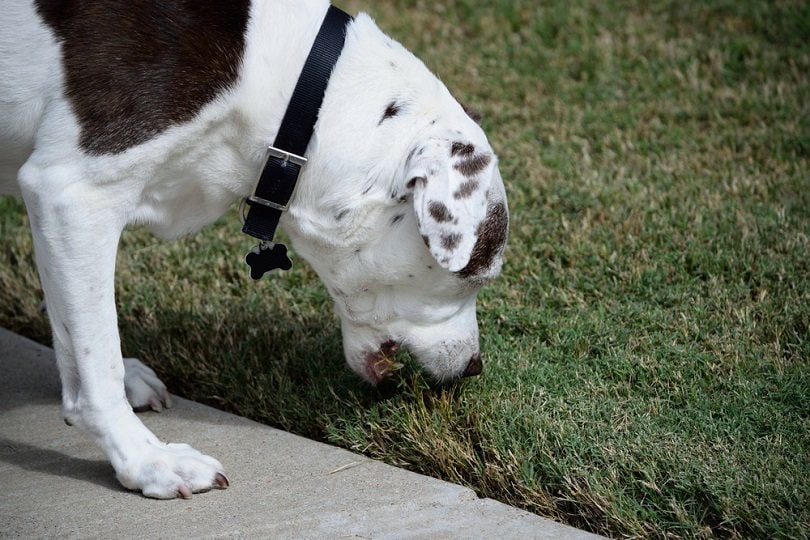
- This problem is usually an emergency and should be treated immediately. But sometimes, the problem isn’t as obvious, and that’s okay as long as your pet can breathe normally. In any case, seek veterinary help as soon as possible to get to the root of the problem.
6. Rabies
Since most dogs are vaccinated against rabies, it’s very unlikely that this will be the cause of your dog’s regurgitation. Still, around 60–70 rabid dogs are reported each year in the U.S. The first signs of rabies are vague, like vomiting, diarrhea, and lethargy. But later, your dog experiences significant neurologic issues which affect swallowing and cause regurgitation.
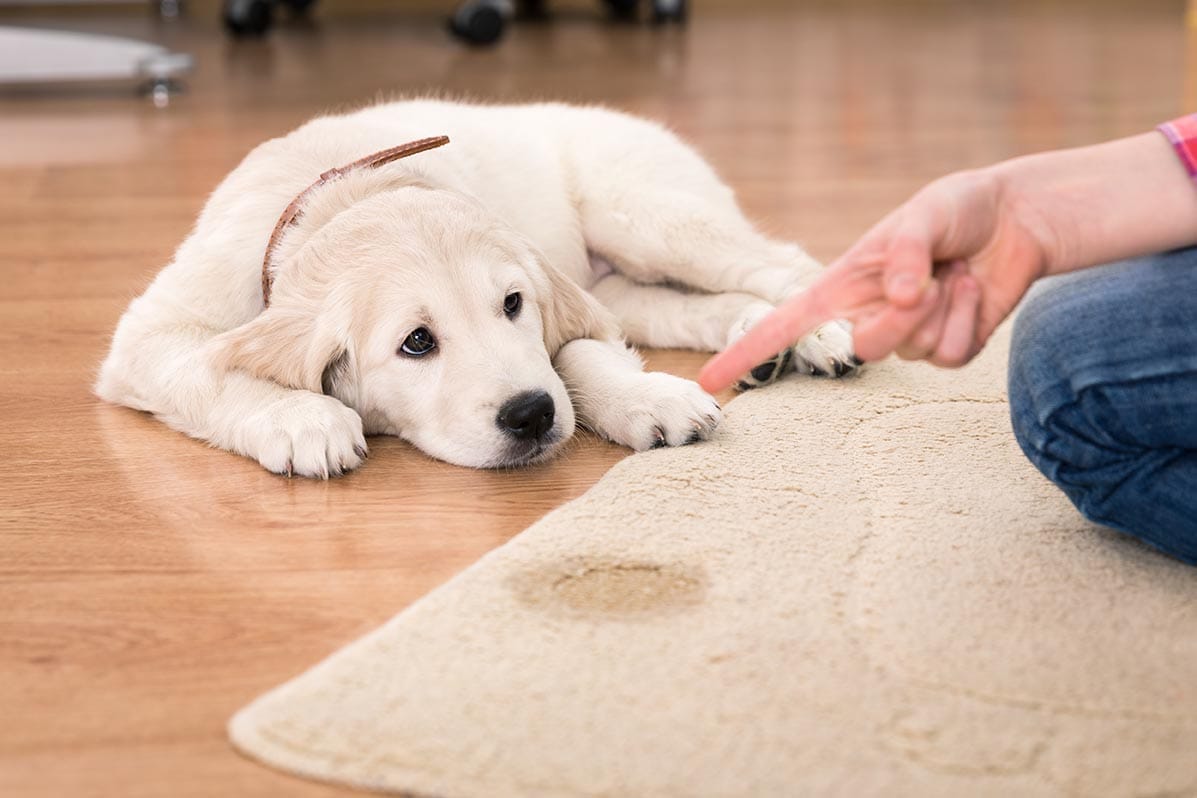
- Unfortunately, there isn’t a cure for rabies. If your dog was recently around wildlife and isn’t vaccinated against rabies, you should seek a veterinarian as soon as possible to get your dog vaccinated.
7. Hiatal Hernia
A hernia occurs when an organ (or any part of your body) protrudes through a gap or opening. Many hernias occur in the abdomen but can occur anywhere in the body.
Hiatal hernias form in the esophagus when the stomach pushes through the diaphragm opening into the stomach. Hiatal hernias appear to be birth defects in many dogs but can also occur from trauma.
Regurgitation is one of the most common signs of a hiatal hernia, as well as vomiting, excess salivation, and blood in the vomit. Some dogs have difficulty breathing from the stomach acid reaching the lungs.
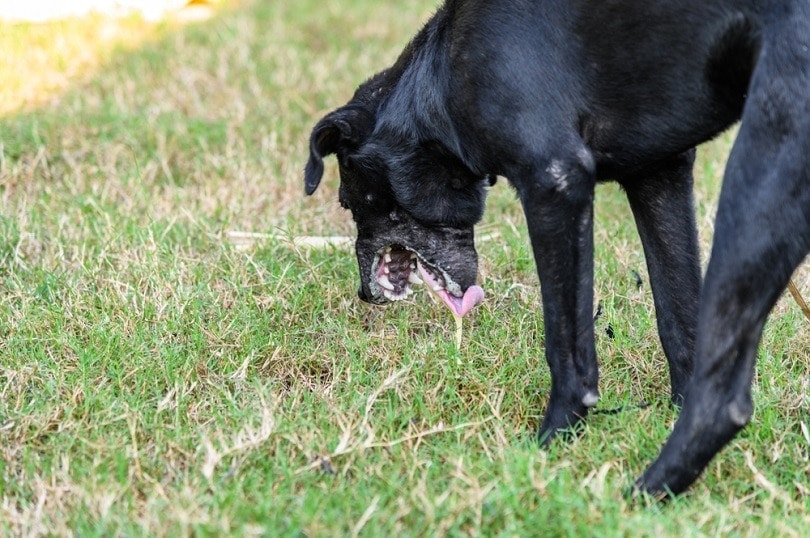
- Treating a hiatal hernia depends on your dog’s medical history. Helping your dog like this is the best way to prevent aspiration pneumonia, which can cause a more serious situation.
8. Esophageal Tumor
We hate to list cancer as a possibility because the last thing we want you to do is panic. However, it is sometimes the cause of a dog’s regurgitation. Esophageal tumors typically grow within the cells of the inner esophagus and the muscles surrounding the esophagus. While these growths can be benign, they are usually malignant.
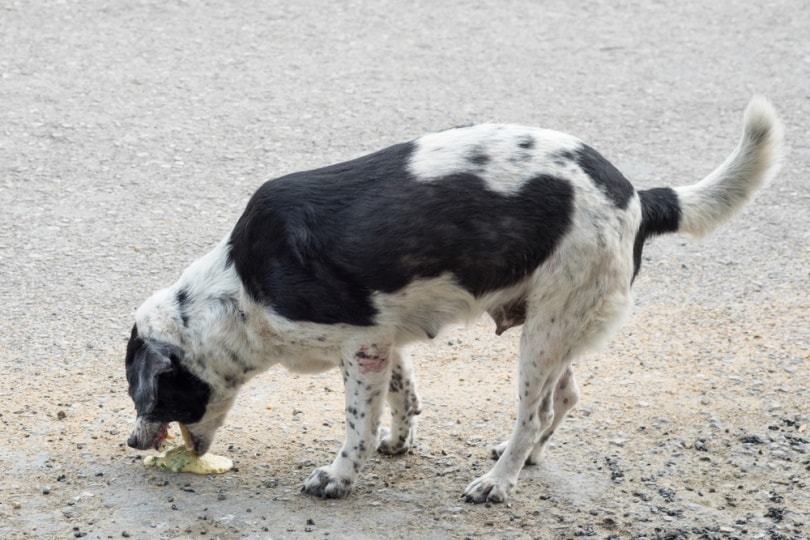
- With cancer, you’ll see other severe symptoms accompanying regurgitation like loss of appetite, weight loss, lethargy, and anorexia. Since all types of cancer are treated differently, the best course of action is to take your pet to a vet to create a personalized plan.
Other Symptoms Associated With Regurgitation
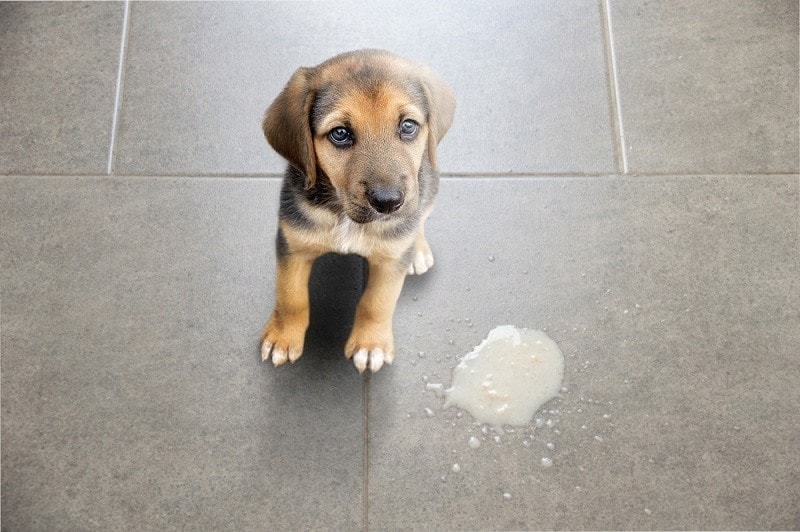
If your dog is regurgitating and you’re not sure why, take a look if any of the following symptoms are present:
- Fever
- Coughing
- Weight loss
- Runny nose
- Lethargy
- Vomiting
- A ravenous appetite
- Neck swelling
- Difficulty swallowing
- Bad breath
- Increased breathing noises
If you notice any of these symptoms alongside your dog’s regurgitation, it’s wise to call your vet and have your dog examined.
Conclusion
You might be panicking as you read this post, but don’t worry. Every time your pet regurgitates his last snack does not necessarily constitute a medical emergency. However, if you notice it regularly, especially if associated with other symptoms like those mentioned above, it’s best to take your dog to the vet to find the cause. Without treatment, it’s a very uncomfortable experience for your pet and can cause other, more serious medical concerns. We certainly don’t want that for your pet, and neither do you!
Featured Image Credit: suchinan, Shutterstock



